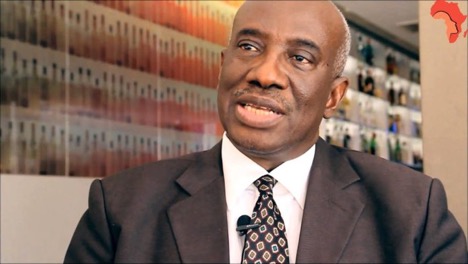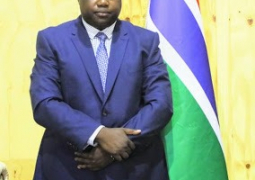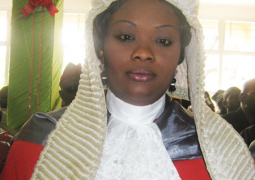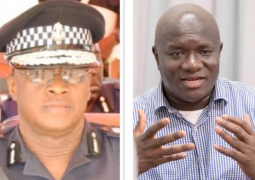
Speaking at the first ever National Dialogue on Friday, Chief Justice Jallow pointed out that a dialogue provides people the opportunity to listen to each other, understand our common as well as different perspectives.
“It equally enables us to identify the challenges we face as a nation and to develop a consensus on what measures need to be taken to address those challenges. Differences of opinion there will always be; and it is healthy and enriching that many flowers of different hue and scent are allowed to bloom in the community,” he advised. “Pluralism is a vital and indispensable characteristic of the democratic environment. Dialogue will empower us to manage those differences of viewpoints and approaches. Dialogue should also assist us in identifying not only differences. It will also assist us appreciate and reaffirm our shared national common values and national aspirations and in that way strengthen national unity and solidarity around these values and aspirations.”
“This is the first National Dialogue. It is clear that it should not be the last. The dialogue should be a continuous process and a welcome outcome of today’s event would be the establishment of a mechanism to ensure the continuity of such a process. The nation needs and can benefit from a dialogue amongst the citizenry. Even at the level of the State structure, I believe that the process of governance can benefit significantly from a regular dialogue between the three organs of the State i.e the Executive, the National Assembly and the Judiciary to enhance cooperation, consistency and direction even whilst respecting the constitutional autonomy of each of these organs.”
“It is fitting on this occasion to recall that for much of its existence as an independent sovereign State, The Gambia’s commitment to good governance was unshakeable and widely recognised, and respected, particularly under the leadership of its First and Founding President Alhaji Sir Dawda Kairaba Jawara. Adherence to the rule of law, respect for human rights and democratic principles was the corner stone of both the domestic and foreign policies of the country. It is commendable that His Excellency President Adama Barrow has made the restoration, consolidation and further development of that governance policy a primary focus of his administration. And as we engage in a national dialogue it should not be impossible, indeed it would be appropriate for us to collectively affirm, whatever our other differences, that adherence to the rule of law, respect for human rights and democratic principles is a core value of our community. For the rule of law, respect for human rights and democratic principles provide the most secure foundation for national peace and for social and economic progress. The rule of law requires us all to be subservient to the law; the law stands above all of us. Not just any law but a law that has the quality of fairness and decency and compatibility with recognised international standards.”
“We must, however, follow up on that affirmation and commitment through many concrete actions. Such as greater public investment in the machinery of justice to improve access to justice countrywide with more and better courtroom facilities and the more efficient and timely delivery of justice. We must strengthen our dispute resolution processes, both formal and traditional, in order to promote stability in our community. The institutions of the Ombudsman the National Agency for Legal Aid and the National Human Rights Commission and the National Audit Office are important elements of the architecture to promoting good governance, preventing and providing remedies for abuse of power and maladministration in the public service, providing defence for indigent persons, promoting human rights and safeguarding our national resources. They need strengthening of their capacity for effective discharge of their mandates.”
“We must intensify our efforts to review our laws, through the Law Reform Commission, to make them more relevant and responsive to our challenges and aspirations. Above all we must not give up on our goal of putting in place a new constitutional framework that promises better governance for our nation. We have come very far, too far, in preparing a draft constitution for us to give up the process due to divergent views. All stakeholders should be prepared to make the necessary compromises and accommodations to enable us revive the process to have a new constitution for The Gambia.”




